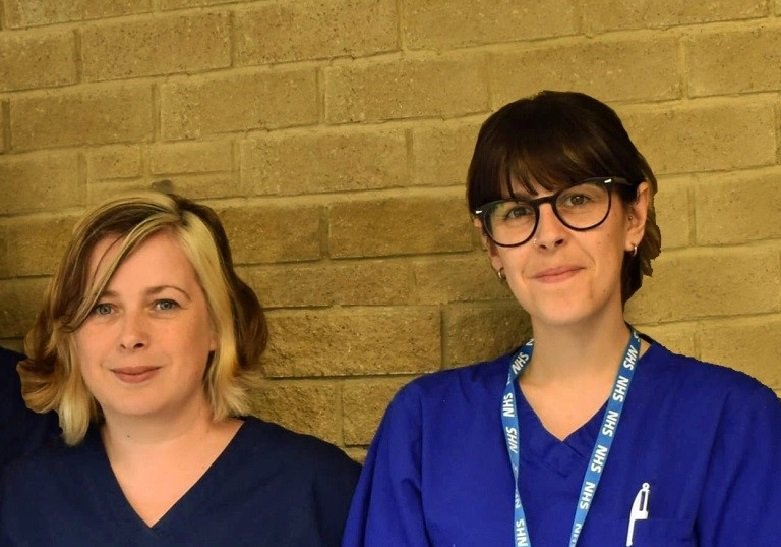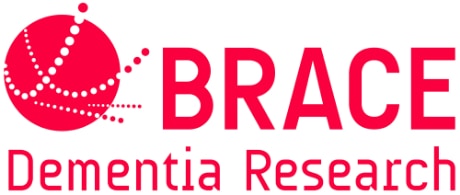
Nurses maintain dementia service during lockdown
By Rebecca Pracownik and Natalie Rosewell, Cognitive Disorders Specialist Nurses (photo taken before social distancing measures were introduced).
Whilst the face of the Bristol Brain Centre is changing in response to the Coronavirus pandemic, the Cognitive Disorders Clinic continues to support large numbers of people with cognitive difficulties.
All face to face activity has needed to cease for all but the most complex patients whilst doctors, nurses and other research staff have been redeployed to the main hospital to support wards coping with COVID-19.
The Cognitive Disorders Service does however continue to run in order to support the large number of individuals who use our service via a telephone service manned by the Cognitive Disorders Specialist Nurses. The Cognitive Disorders Specialist Nurses have stepped up their support in order to free up the consultants wherever possible, offering telephone reviews and welfare checks for those due to be seen in clinic as well as those who we identify as most vulnerable.
The Nurse Helpline continues to run; with the phone line increased from one line to two whilst we anticipate a greater need. This phone line is open to anyone who uses our service and is available Monday to Friday 9am- 5pm for support, advice, signposting and where necessary escalation of care.
In these unprecedented times the support we are offering does have some idiosyncrasies. From individuals with dementia who cannot understand the need for social distancing and isolation; or why it’s in place at all to those struggling with how to receive groceries when they have been told to stay inside but there are no delivery slots left to book.
Then there are those with increasing confusion – is this because of our social situation or because they have an infection that needs treating? Simple procedures previously in place to check this out are now harder to access.
Then there are those with rarer conditions who do not sit in the easily identified vulnerable group as their dementia took hold whilst they were still young; no less in need of support but more invisibly so in the community.
Families are anxious as to whether they are ‘allowed’ to visit their relatives to support with the behavioural, psychological and social aspects of dementia in these times when we are told not to visit to protect our loved ones. Often our discussions help weigh up what is in a family’s best interests all round.
Our conversations often turn to COVID-19 and the strange world we are living in at present. And all find the time to check on us too; which is always greatly appreciated.
Our belief is the more people we can support via our phone line the less likely those people will need to access their GP or local Emergency Department. We are trying hard to ensure as many of our patients as possible know our helpline number and that we are here for them should they need us; no matter how big or small.
***
Thank you, Beccy and Natalie for providing this information. BRACE funds clinical research in the Bristol Brain Centre, including funding a Dementia Research Nurse post.
